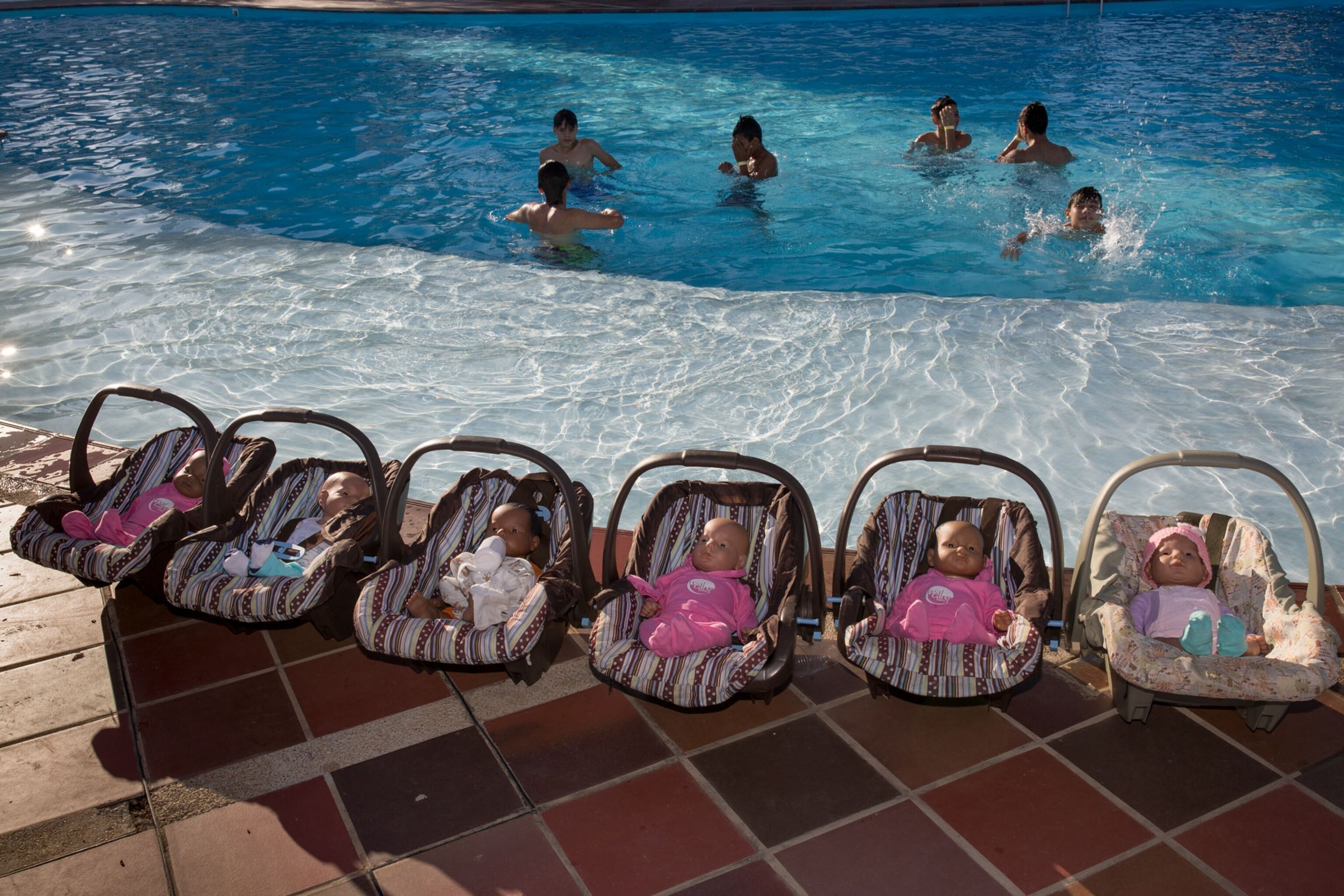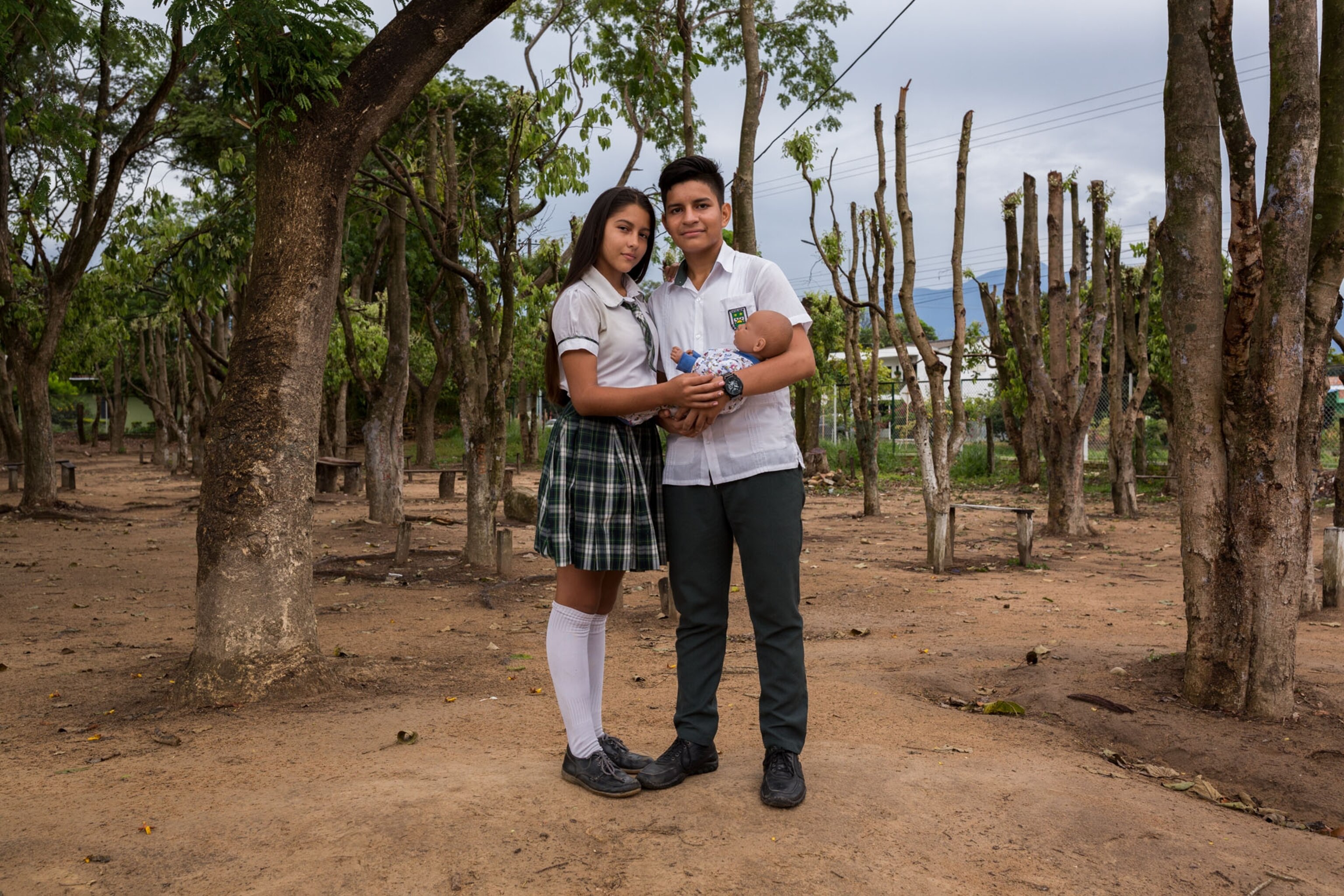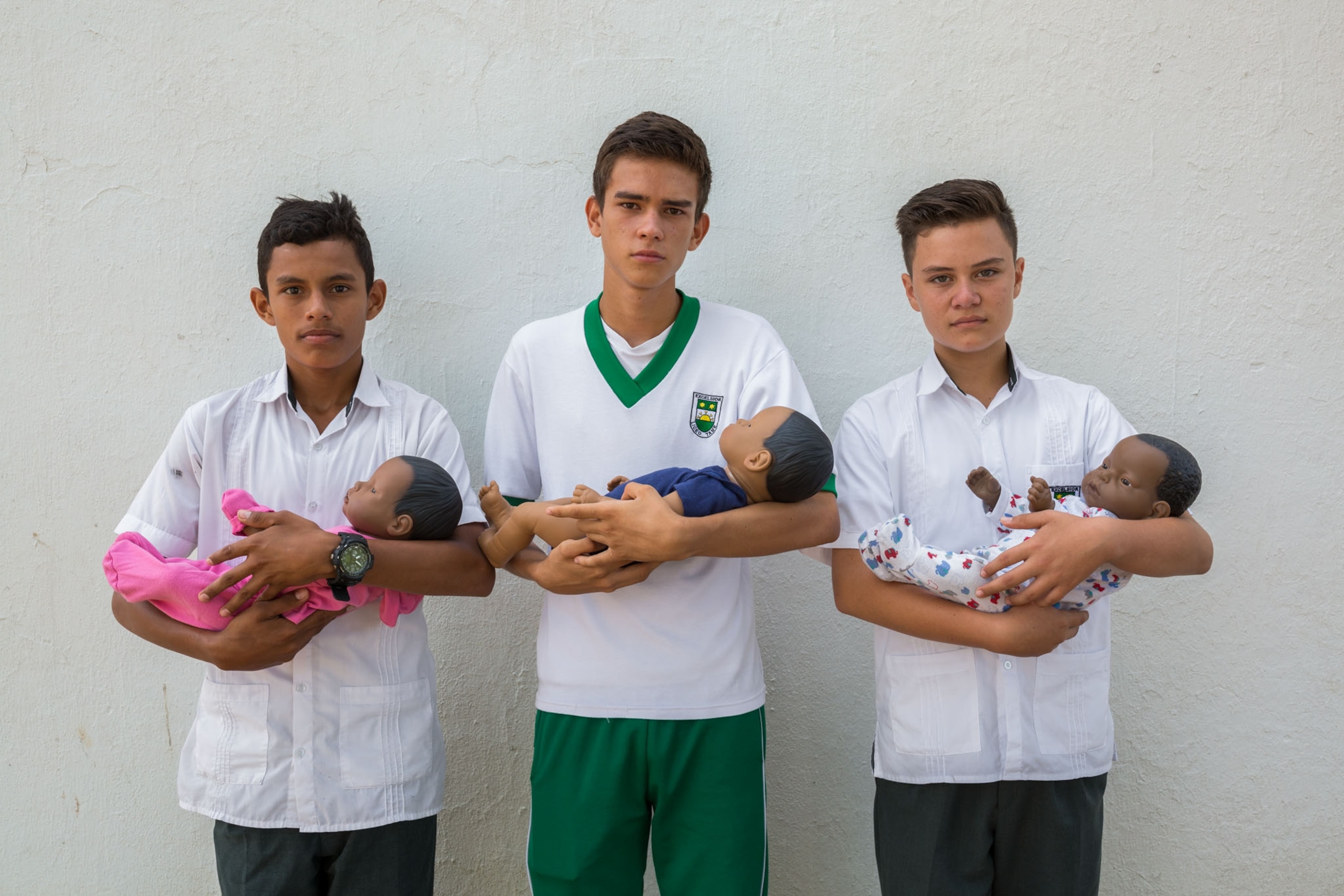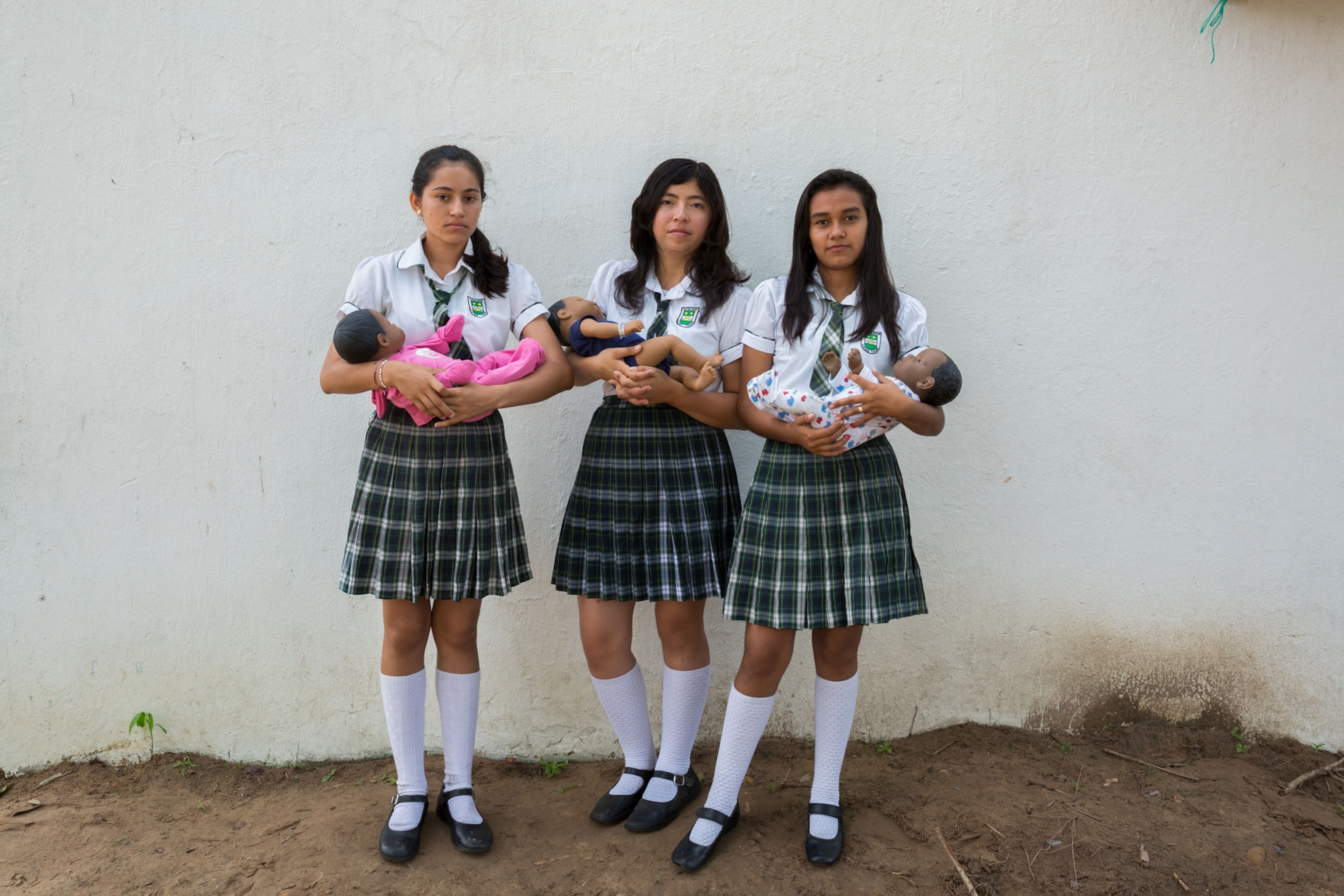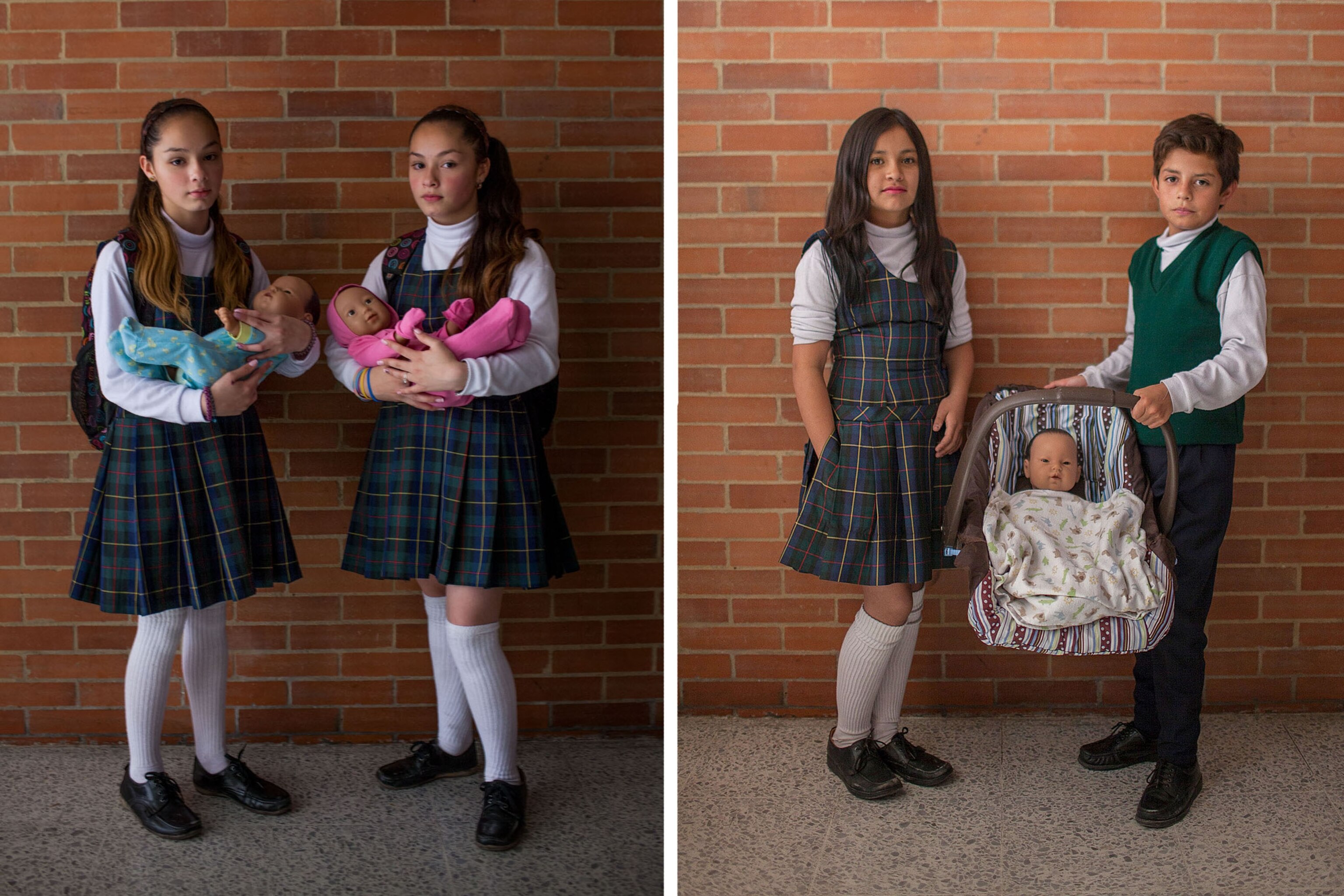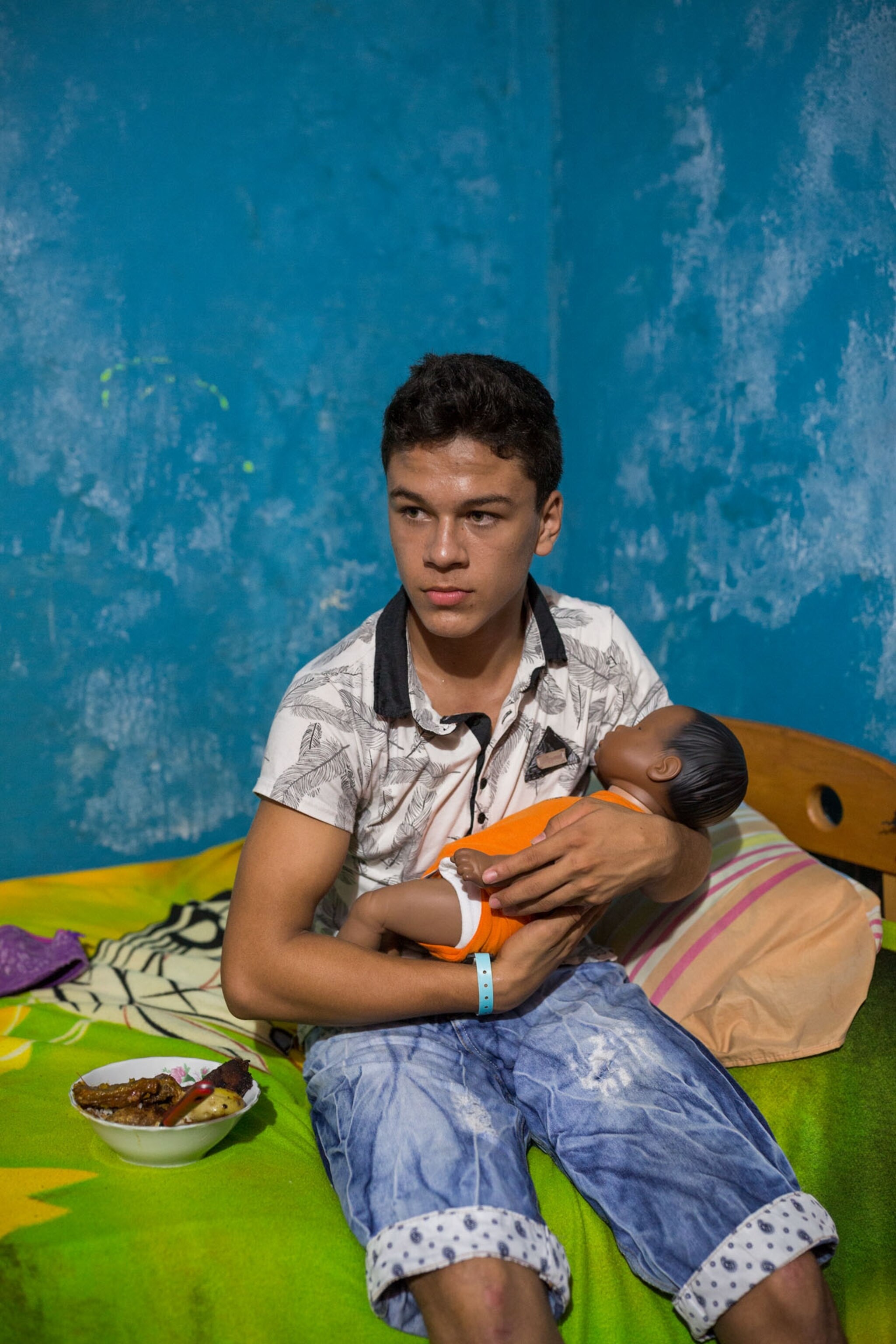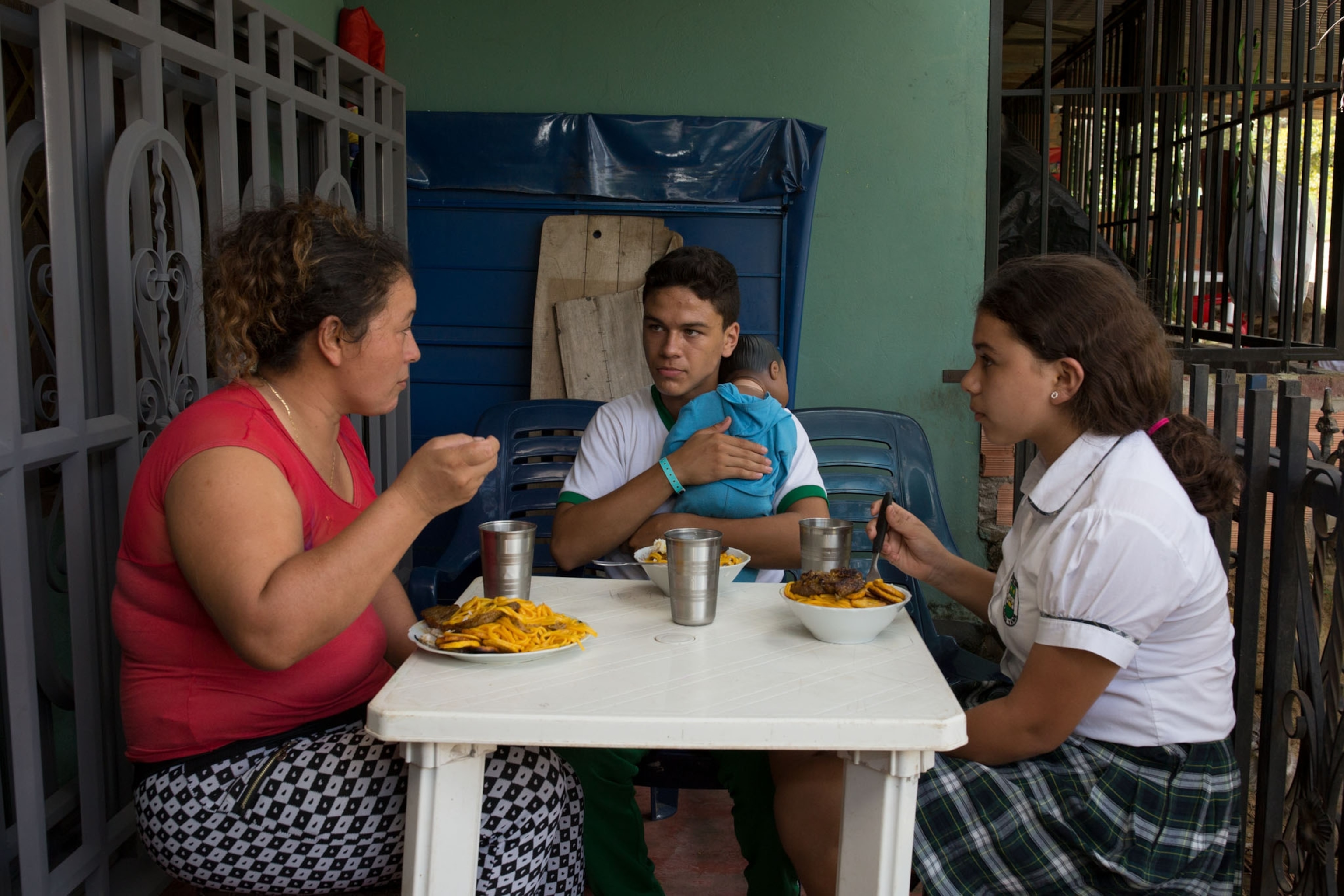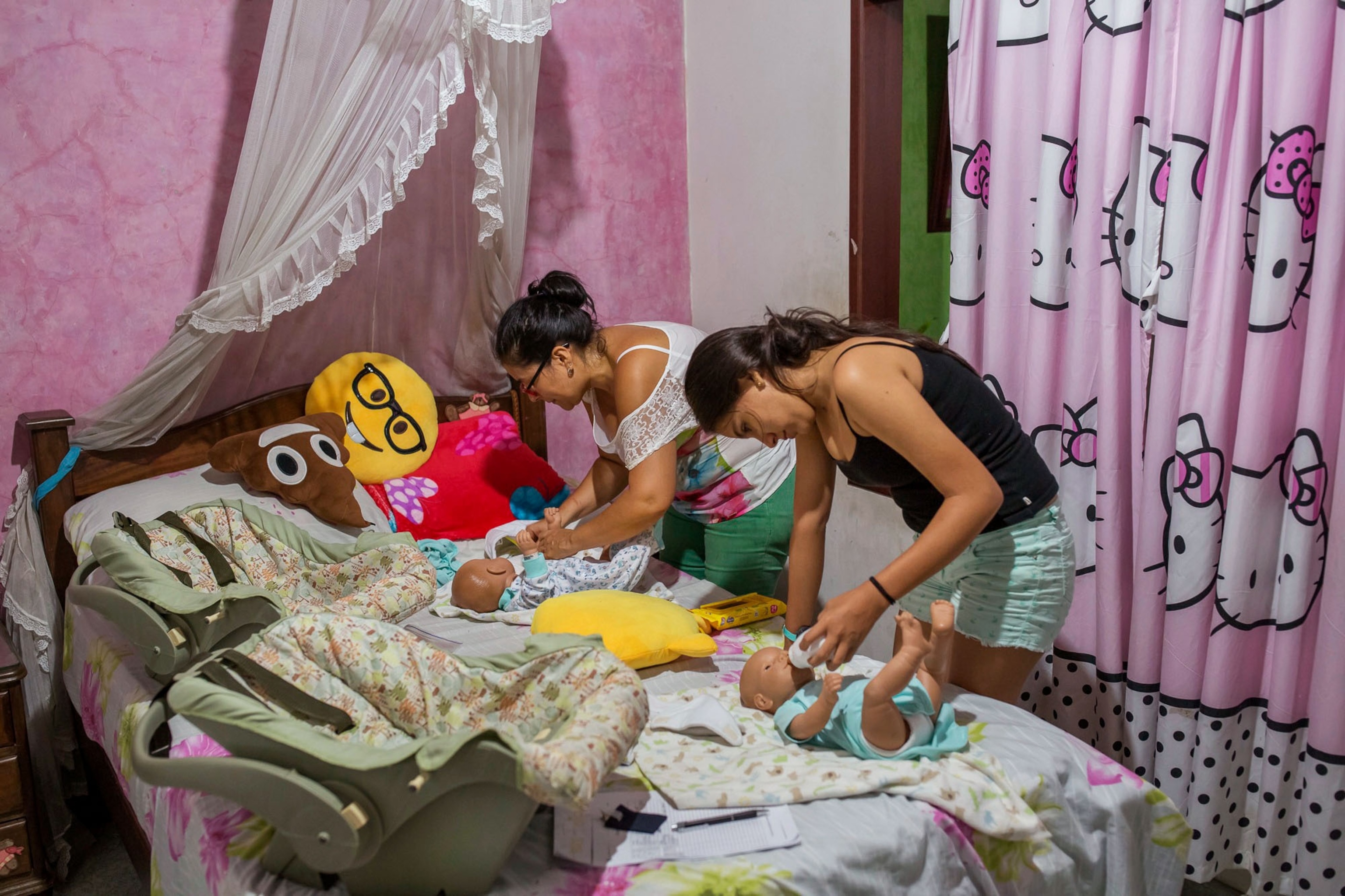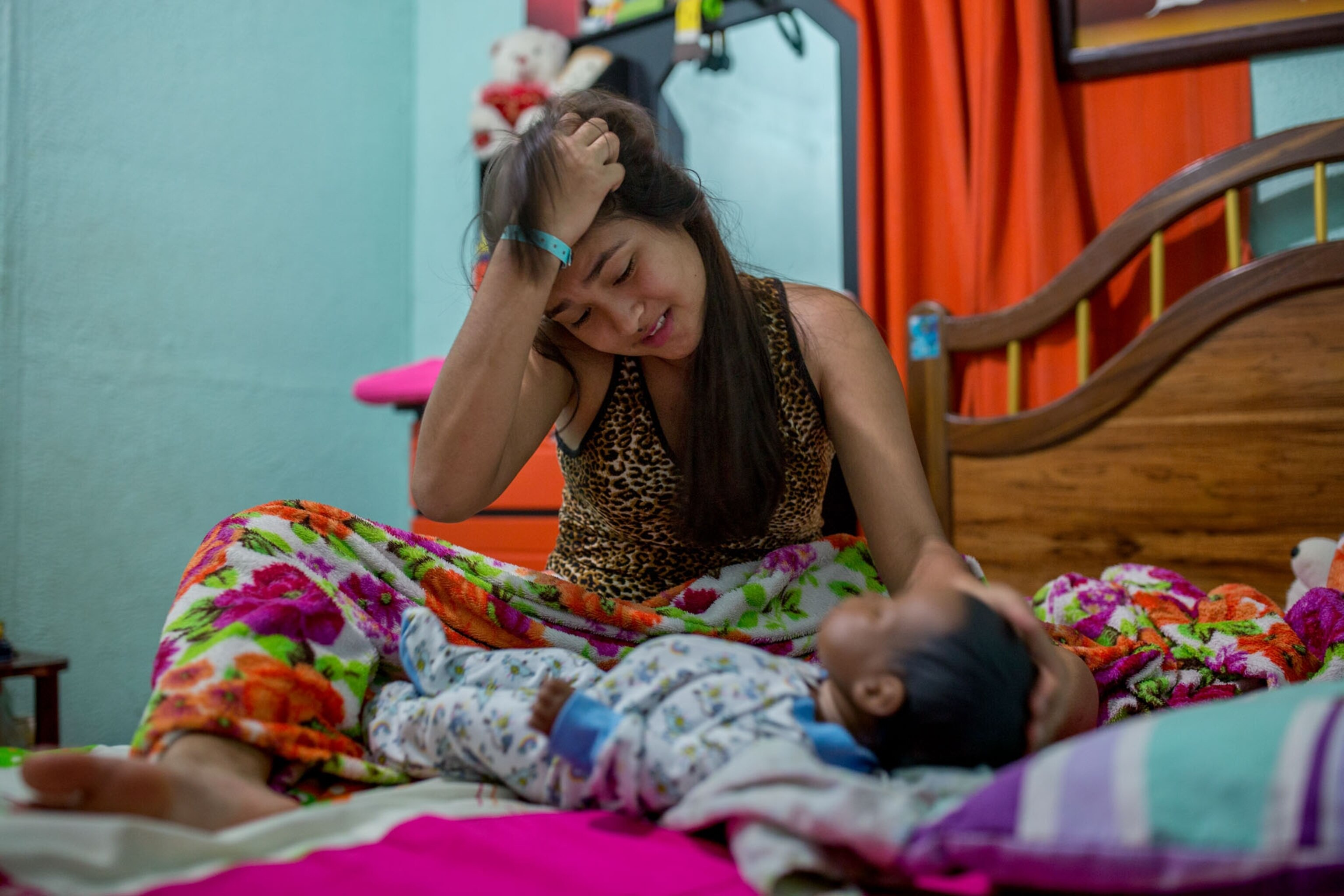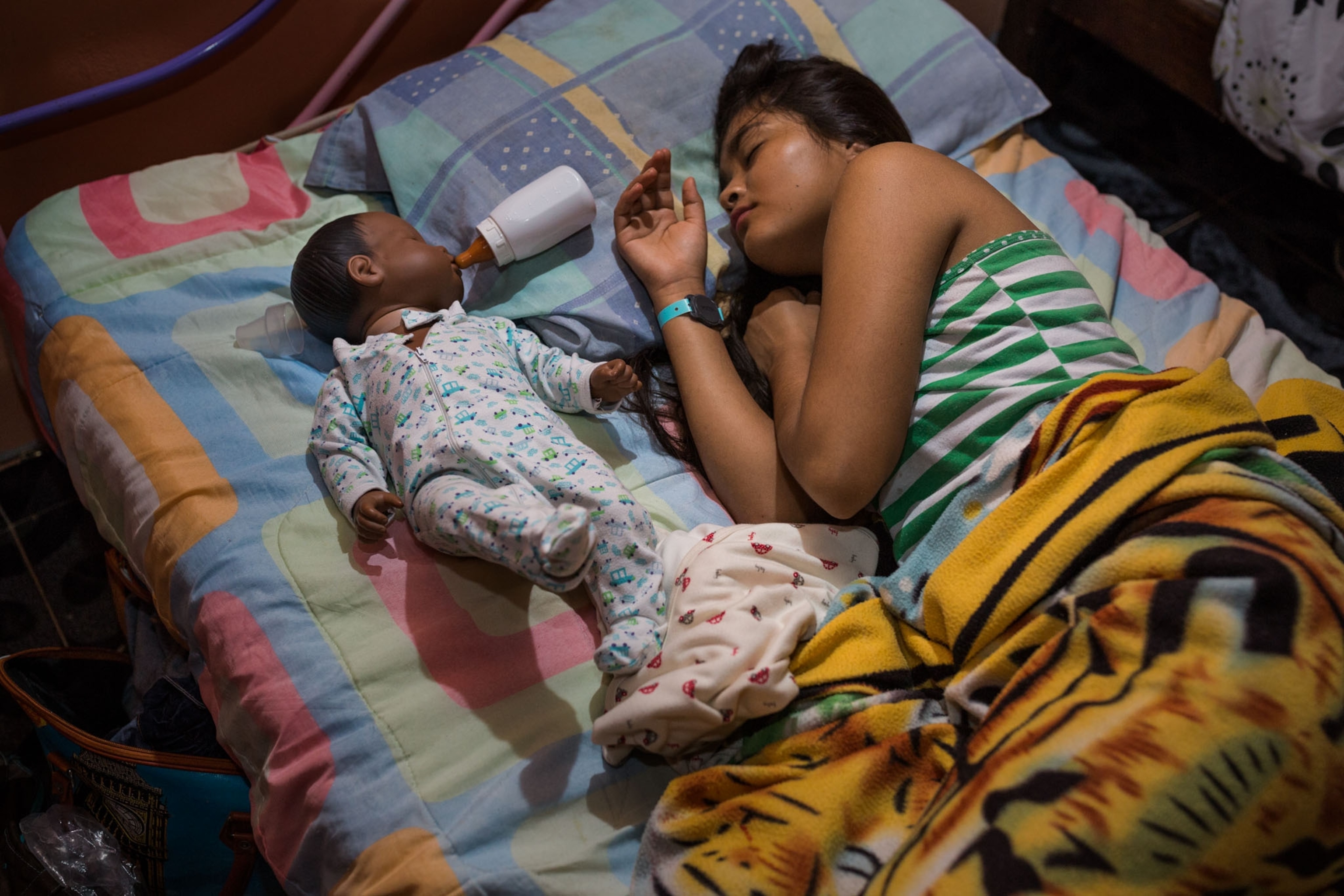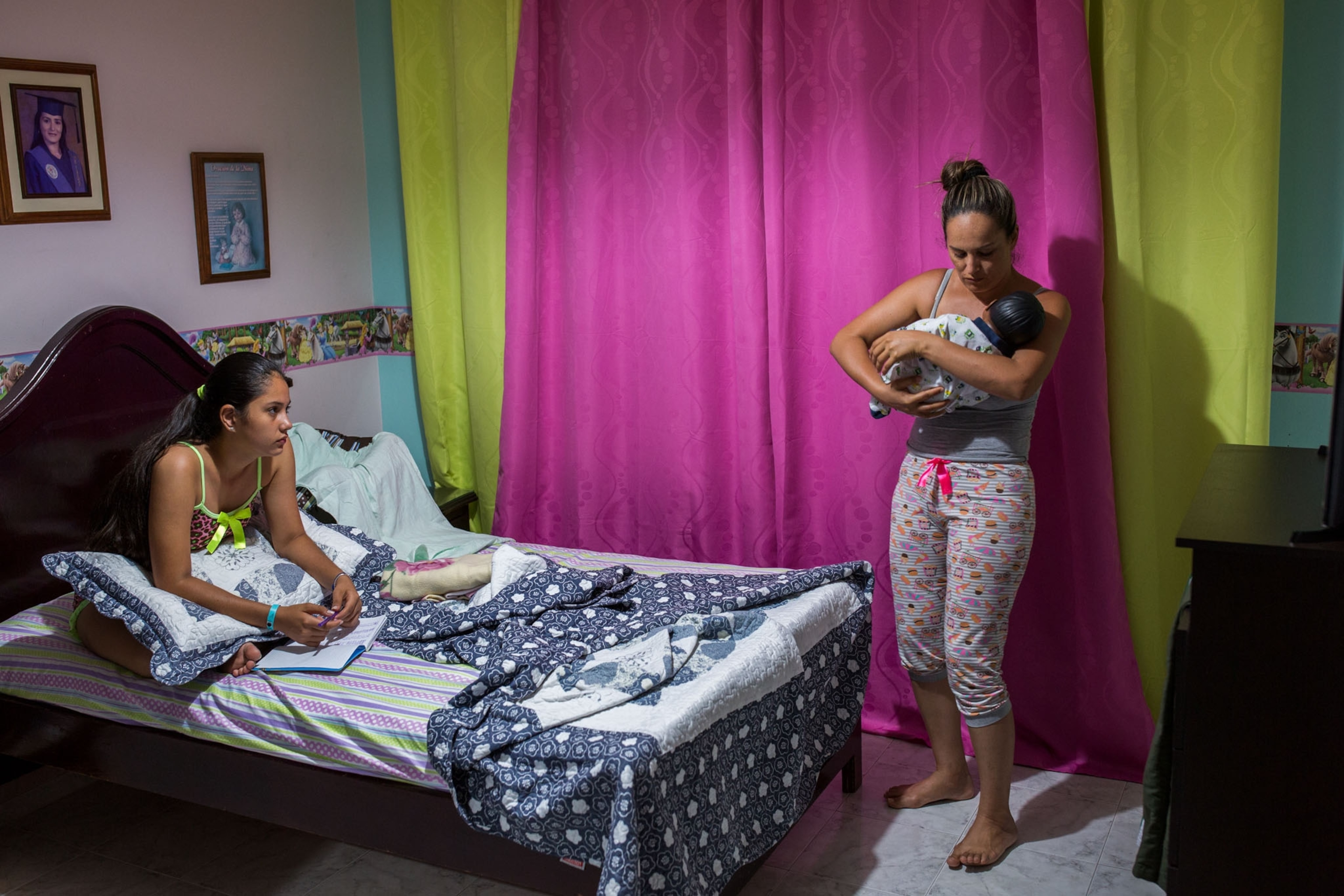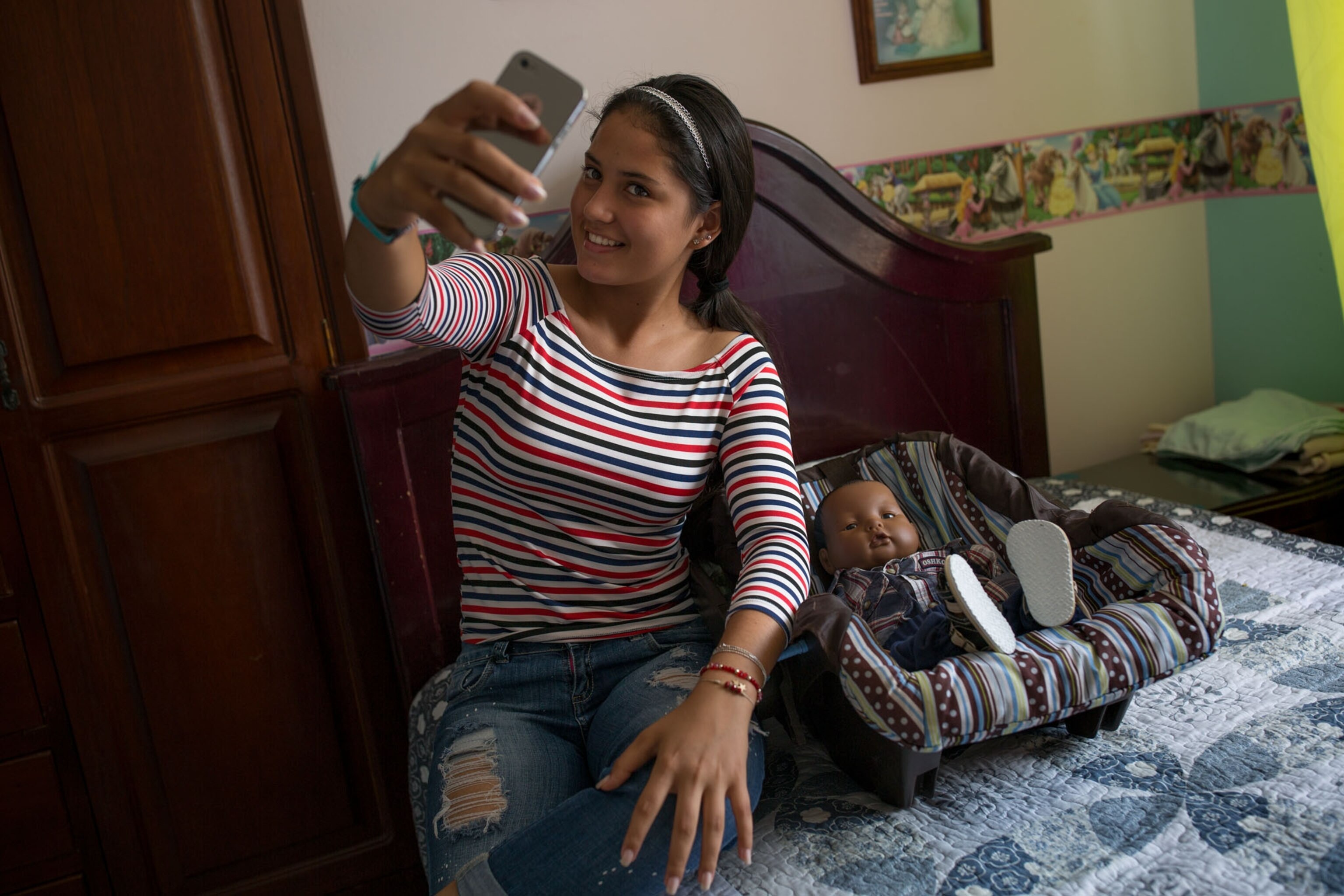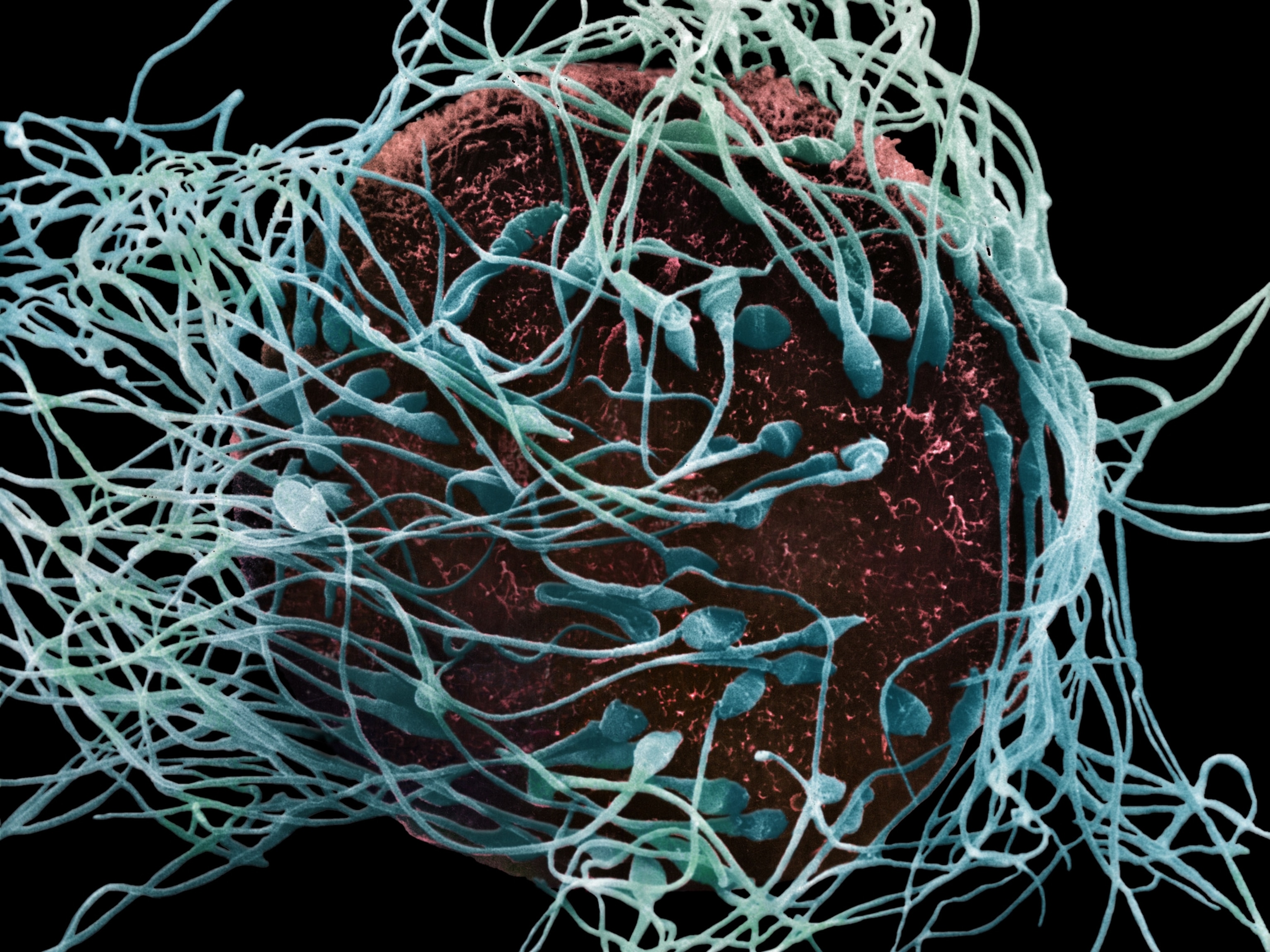
Can Robotic Babies Help Prevent Teenage Pregnancies?
One in five Colombian mothers is a teenager. This program seeks to reduce early pregnancies by having youths spend time with some very needy dolls.
Jefrin Bayona is already running late for school and it’s just after 6 a.m. “I barely slept last night,” the 15-year-old student says. “The baby woke me up at 10, 12, four in the morning.” Classes start early here in the rural plains of northeastern Colombia. Standing in the dark kitchen of his home, Jefrin drags a hand down his tired face between sips of hot chocolate. Estiven, his infant son, silently sits in a baby carrier on the sparse living room floor.
Fortunately for Jefrin his early foray into fatherhood ends today. He’s participating in an immersive school program that aims to prevent teenage pregnancy. “Estiven” is actually a robotic baby designed to simulate a needy one-month-old—crying at programmed intervals day and night to provoke students to feed and burp the baby and change its diaper. The responses are tracked and recorded, and students are graded on how quickly they react. A baby left unattended for too long will shut down, affecting the student’s grade.
Jefrin has taken care of the baby for the past 48 hours, and the typically outgoing and buoyant teen is clearly exhausted. He arrives at school five minutes after the bell and hands the baby off to fellow student, and designated mother, Alexandra Guerrero, 15, for the next two-day shift.
Worldwide some 17 million teenage girls give birth every year, facing increased risk of health complications during pregnancy as well as lifelong economic challenges for themselves and their families.
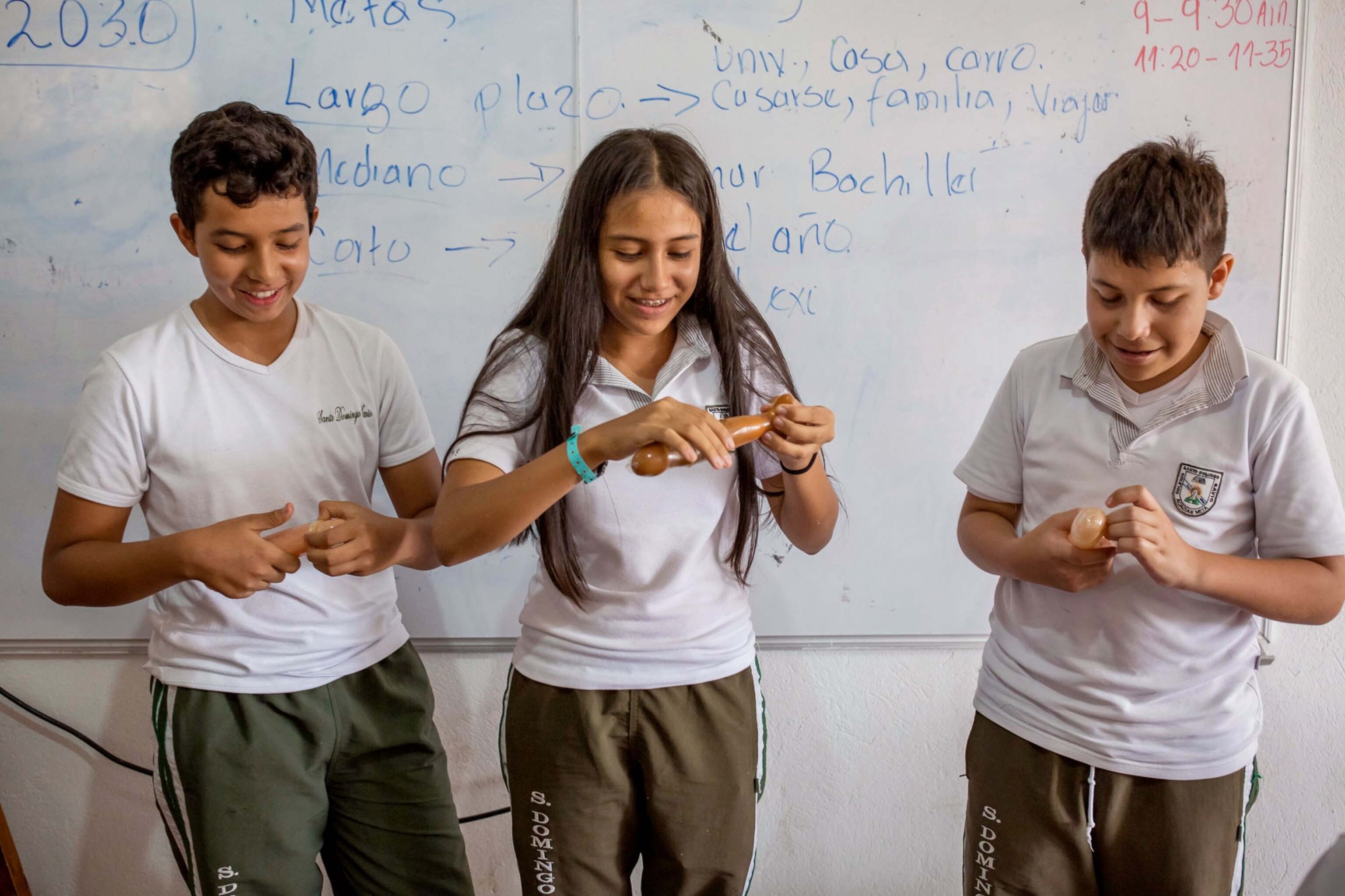
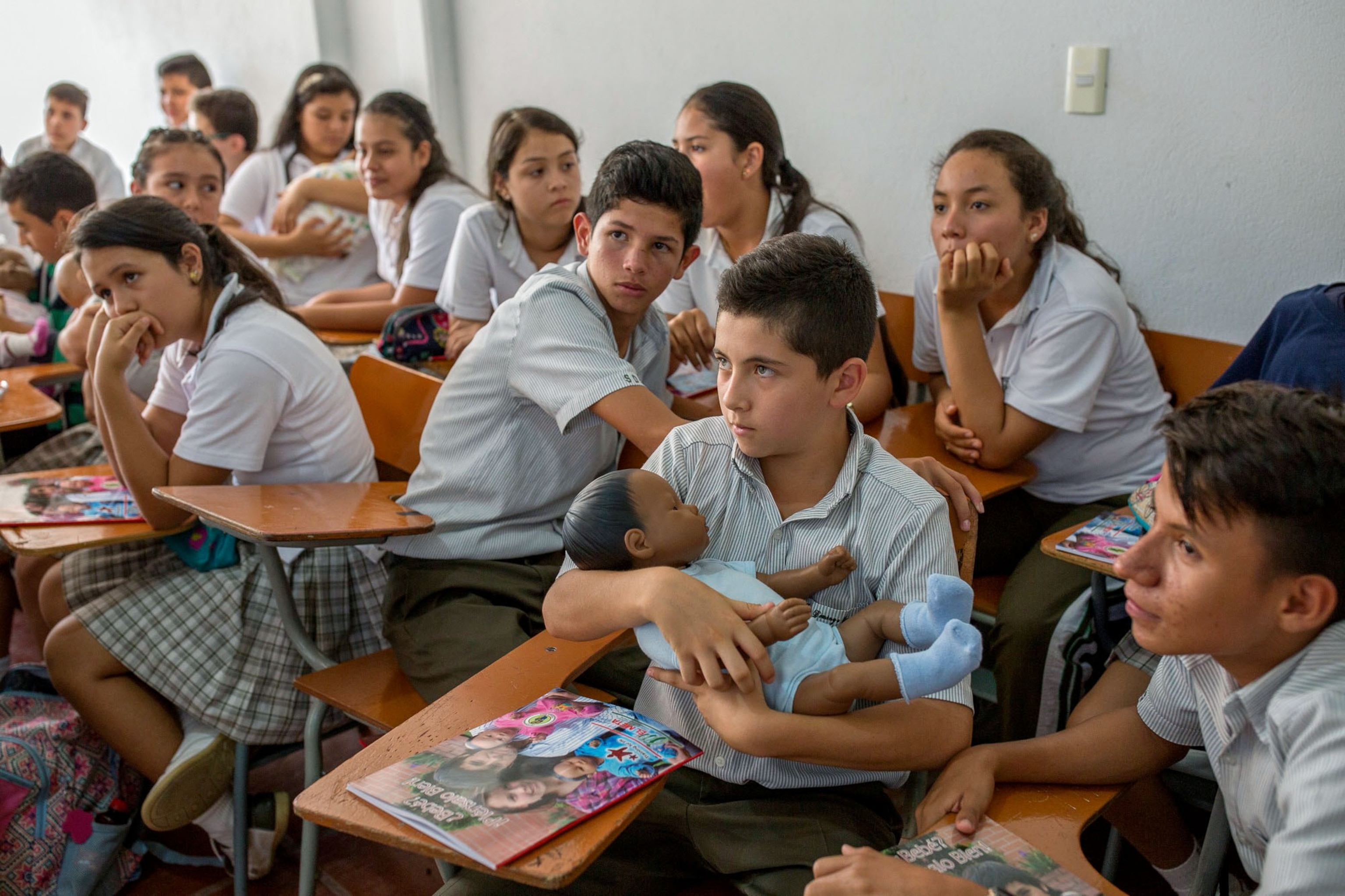
Education and dreams of advancement are often derailed for these young mothers. Latin America has the third highest teenage pregnancy rate in the world. While the global rate has declined over the past decade, the pace of decline in Latin America lags behind that of other regions. In Colombia one in five mothers is between 15 and 19 years old; poor rural teens are at the greatest risk of early pregnancy.
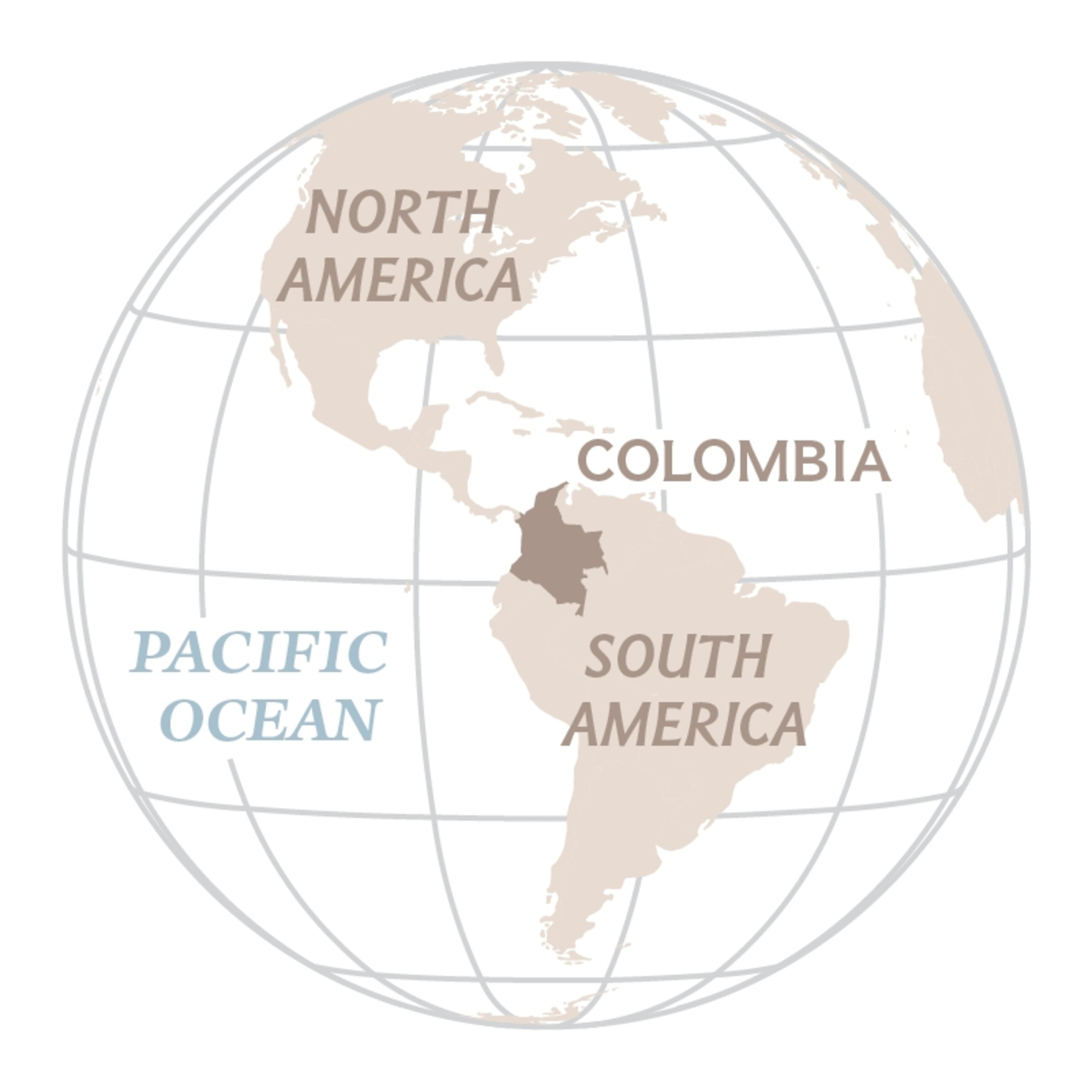
That brings us here, to the low-slung concrete classrooms at a public school in the small town of Tame, Colombia. The program that Jefrin, Alexandra, and 100 of their ninth-grade classmates, ages 14 to 16, are enrolled in—with their parents’ consent—aims to prevent early pregnancies. In addition to the two-day simulated-baby exercise, students undergo 30 hours of instruction, from basic sex education and contraceptive use to discussion of gender stereotypes and roles, domestic violence, and family budgeting. Students have to pass a final exam on these topics and write an essay or shoot a video on their experiences with the babies.
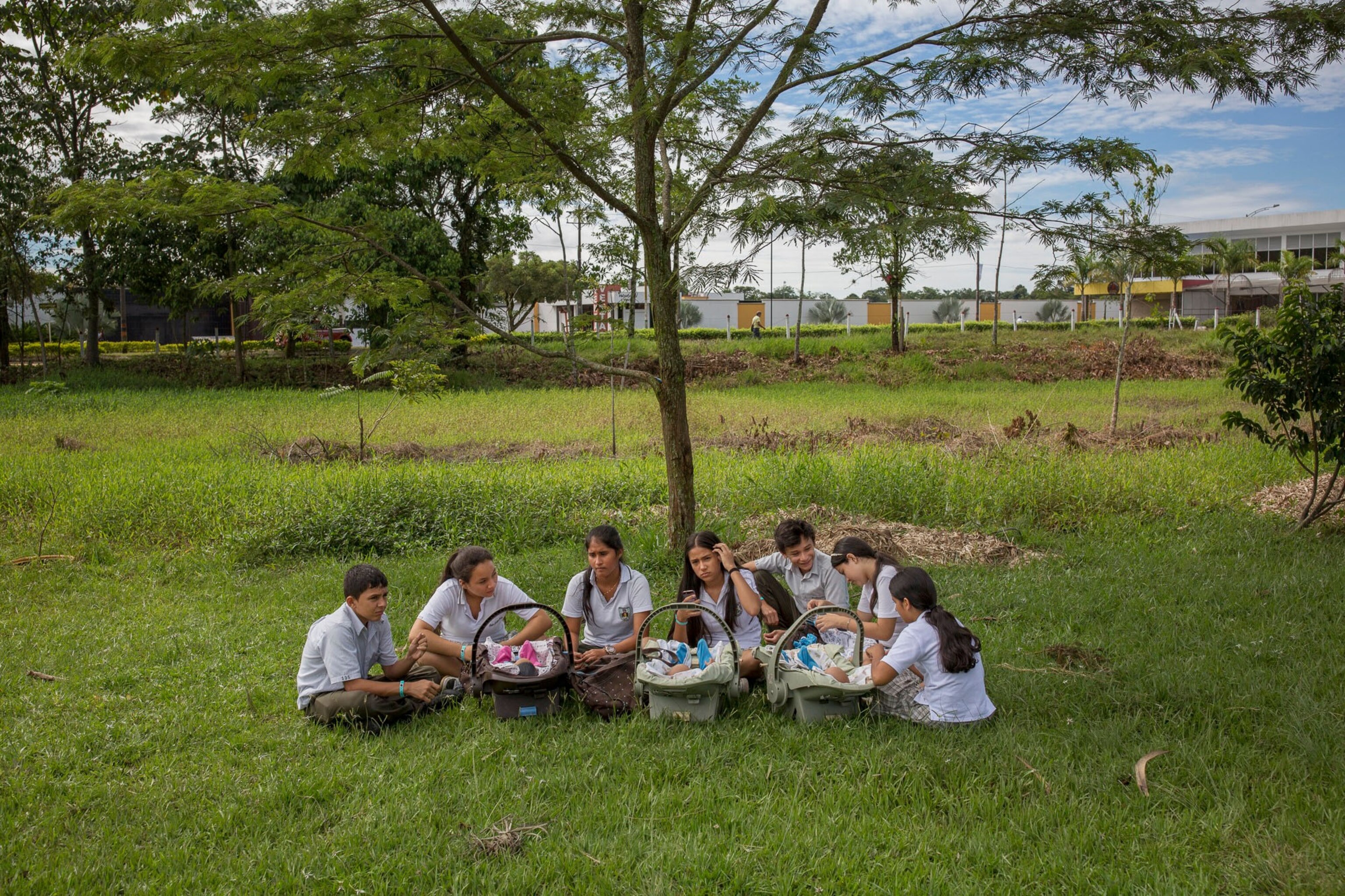
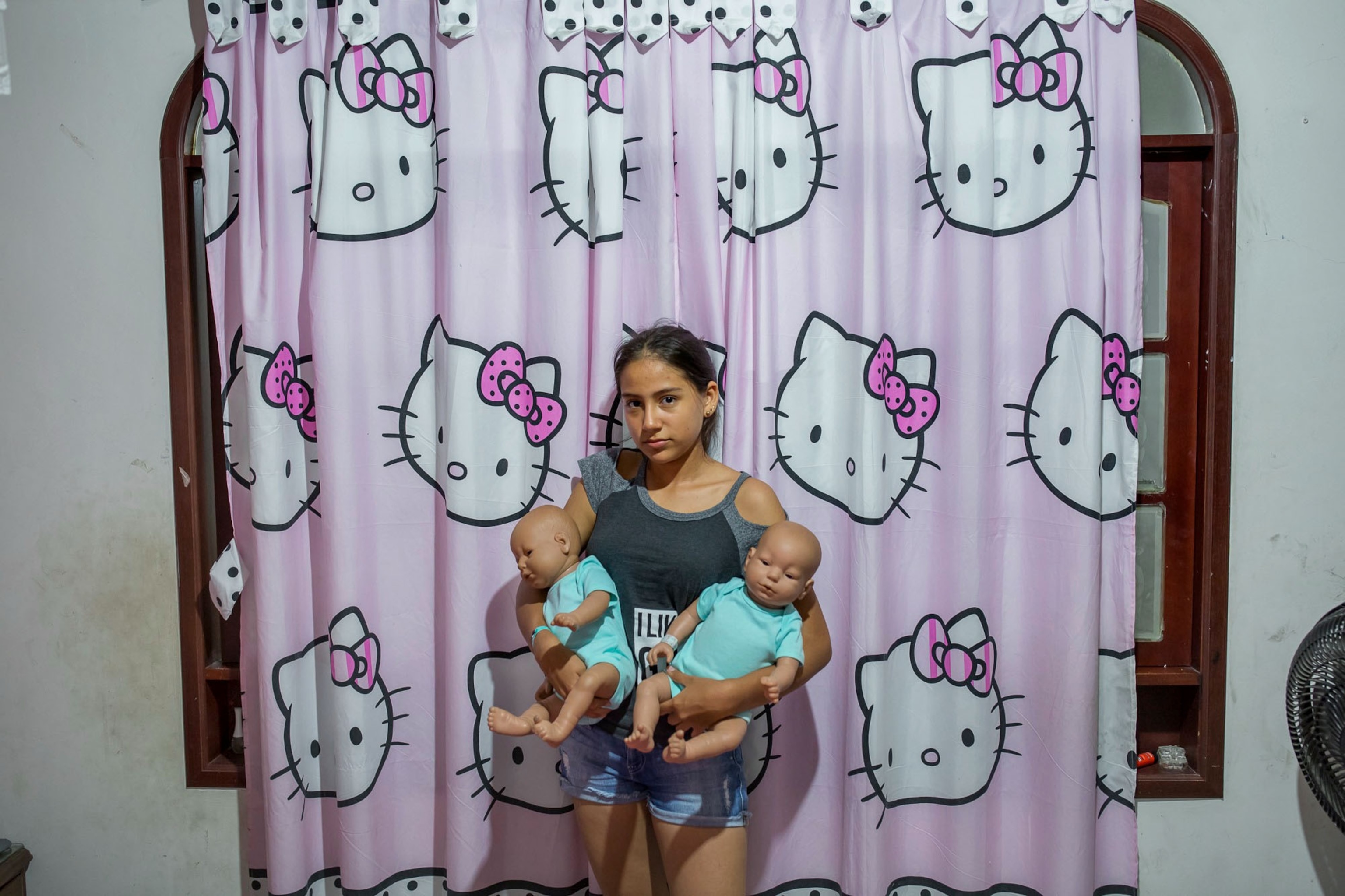
“Sex education and the baby simulation are both important; they reinforce each other,” says Camila Guzmán, director of the program ¿Bebé? ¡Piénsalo Bien!—or Baby? Think It Over!—in Colombia. “The objective isn’t to scare the students. We want to create a consciousness about sex and pregnancy. It’s OK for them to have kids—when they’re ready.”
The robotic babies were developed in the United States more than 20 years ago, and the program has been implemented around the world. But it is relatively expensive—costing more than $100 per student here in Colombia and requiring multiple instructors. That raises questions of scalability in developing countries with scarce resources. Yet the program has proved effective. In a study of more than 1,400 student participants in one region of Colombia, the program reduced the teen pregnancy rate by 40 percent.
After the weeklong course Alexandra, who plans to pursue engineering in college but admits, “I really want to be an actress,” is determined to delay motherhood. “I don’t want to have a baby now. I’m not capable of taking care of it,” she says. “Maybe when I’m 25 or 26 and I finish studying.”
